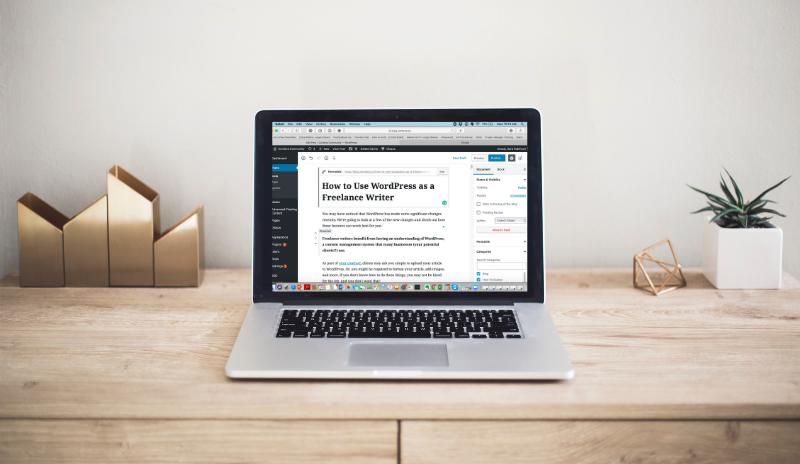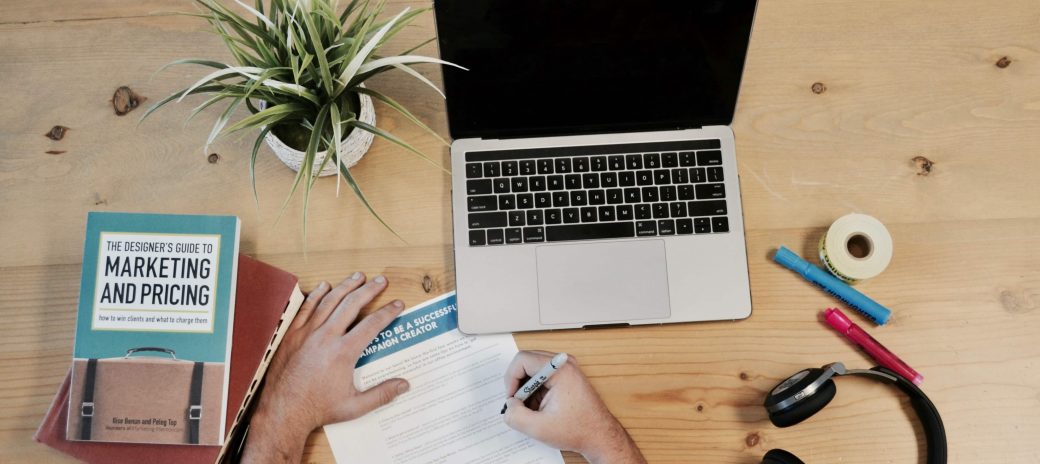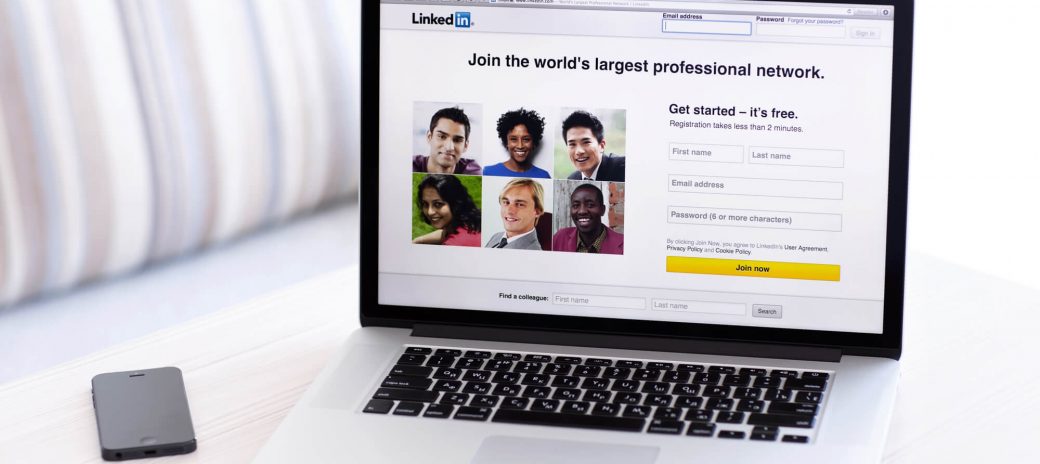Freelance writers are self-employed. It’s awesome.
But we also might have many bosses.
Even though we run our own business, can negotiate, and can accept or turn down work, ultimately, we are not totally in charge when it comes to our assignments.
Freelancers will “report” to an editor, business owner, content manager (or similar), and though this interaction may be as simple as accepting an assignment and then submitting an article with an invoice, they are still your boss for that assignment.
And often, there is much more to the business interaction than that.
When much of the communication freelancers do is through email, there are important considerations to make because let’s face it: once an email is sent, it lives forever. And you know if you send a bad one, the person receiving it probably won’t delete it!
You might be thinking “I’ve had email for as long as I can remember, and I know how to send emails to my bosses.”
But, please keep reading.
While you may have sent thousands of emails and believe in your capabilities, I’ve been on the receiving end of a lot of poorly-written, shake-my-head, make me wonder “what were you thinking?” types of emails when I’ve been in management roles.
And these people were likely confident in their emailing abilities.
While I’m sure you’ve been emailing for years, let’s just go over some professional best-practices for email.
Email communication basics:
1. Start with a professional greeting.
When you begin an email without something like “Hi Sara,” it feels rude. It’s like you just walk up to me, without acknowledging that we’re now sharing space, and you just start talking.
Even if your boss tends to do this, remain professional and continue with a greeting.
2. Be clear and concise.
When it comes to email, we want to do our best to relay all pertinent information to limit back and forth (especially when someone’s not able to just walk over to your desk and ask you to clarify).
I also like to protect my time by avoiding phone calls and meetings which tend to start off as productive but can easily get side-tracked, so I want to get everything handled through email.
This is why it’s important to be clear, but try to avoid filler, just like you (hopefully) do with your writing.
I’ll be honest- I’ve been called out for long emails. On more than one occasion. In an effort to be clear, I may miss the mark on being concise.
We’re all works in progress!
3. Edit and organize your email.
Just because an email is “casual” doesn’t mean you should just write and send. While that may work for your family and friends, hold yourself to a higher standard with work emails.
Write.
Then re-read and edit, organizing the email to improve clarity.
Make sure you spell check your emails and that generally, they’re grammatically correct. While email can be more casual, since people are hiring you to write, all examples of your writing (email included) are up for scrutiny and can influence if you’re hired.
4. Close out your email appropriately.
Just like we don’t walk up and start speaking without a greeting, we don’t typically walk away from a conversation without some acknowledgment that it’s over.
Be sure to wrap up your email in an appropriate way. I usually sign off “Thanks” or “Have a good day,” and then my name.
5. Consider setting up read receipts.
This is not something I’ve done, but if you have gmail, try Boomerang to learn if your emails have been opened.
That way you can know how and when to appropriately follow up.
6. Have an email signature.
Include all pertinent information, including your email address. Some email programs are finicky and it’s hard to see the email address of the sender. If your boss needs to copy and paste your email somewhere (like a contract!!!) you want it to be found easily.
Similarly, if you mention you have a blog, then that URL should be in your signature, as a clickable link. Someone emailed me the other day and had a png image for contact info. Though it only took a couple of seconds extra for me to type in her URL, that could be enough to annoy a busy editor and stop them from contacting you, especially if they can’t easily find your site.
Now that we’ve reviewed some email basics, here are some important email communication tips for any freelancer:
1. Communicate proactively.
This is true in business and in life.
It’s best not to wait until the last minute, for example, emailing with a question or sending a note to request an extension. Generally, your bosses will be more flexible (when they can be) when you reach out as early as possible.
I get that we can’t anticipate emergencies, and when these occur, we don’t always think to inform the bosses, but do what you can to be proactive with communication. This gets noticed in a positive way.
2. Stay in touch, but don’t be annoying.
Editors, project managers, and bosses in general are busy (we know you are too).
If you’re working on a long-term project, it’s good to stay in touch so that they know what you’re up to, you can make sure you’re on the right track, and to keep a positive relationship going, but don’t go overboard. You can even ask in the initial conversations how often they’d like updates.
If you’re not currently working on a project but want to stay in touch, consider a monthly or every other month email where you send a resource you found, pitch a new idea, or share something new like additional work you’ve done in their niche.
But remember, everyone is busy- don’t clog anyone’s inbox unnecessarily.
3. Don’t send an angry email.
We get it- sometimes you get upset. But, that doesn’t mean you should put all your feelings into your email. Try to focus on the facts of the situation, the impact, and possible resolutions.
Leave the email alone for a bit.
Have a trusted person (maybe someone from a mastermind group or in your network) read the email.
Then, send.

4. Ask for a phone call when needed.
If you have a tough subject to talk about, you may want to request a phone call. Keep the email simple, stating that you’d like to check in over the phone, give a brief introduction of what you’d like to talk about, and give your availability.
This is a great alternative to the angry email.
When email lives forever, sometimes it’s best to have the conversations live, even if that’s less comfortable.
Keep in mind phone calls can be great for more positive conversations too. If you want to check in about how much you enjoy working with the company and you’d like to further the relationship (or ask for a raise), the personal touch of a phone call may tip the scales in your favor.
5. Keep your email organized.
This final point isn’t about the email itself, but your email in general.
I know. Your inbox (and folders) can get out of control.
But, it’s awful when you know an editor sent you information and now you can’t find it.
So, figure out how to organize your email and the information that comes in:
- Use descriptive subject lines in your emails.
- Consider starting a new thread for a new topic.
- Utilize folders
- Organize some of the information outside of email
Though folders are great to keep all email from a client together, it becomes a big waste of time to continually return to, search through, and then find what you’re looking for.
For example, I had a client who approved six months’ worth of blog topics. Every time I had the note on my calendar to write the next article, I went back through my email to find my next topic.
But, because I sent these topics in an email thread with an unrelated subject line, it always took me unnecessary time to find.
Similarly, another client sent their style guide via email. Every time I wrote an article I went back to email to find it.
It took me way too long to get myself organized outside of email to keep all this client-specific information easily accessible.
This organization is also important because it allows you to find the information you need and not bug your client for answers you already have.
Final Thoughts about Email Communication for Freelancers
When so much of our interactions are through email, and given that writing is in our job description, it’s important that we take the time to communicate effectively through email.
When someone sends an email asking to guest post on my site, if their writing is sub-par, I’m likely to tell them I’m not accepting posts right now. I assume that if they can’t write well in an email, then they don’t have the ability to write a full blog post.
Maybe that’s not a correct assumption, but that’s the message their email sends.
For people looking to hire writers, they likely get a lot of email communication, and it’s easy to cut someone based on something as simple as an email.
The good news is, communication by email is a skill that you can work on.
Take the time that work email deserves (don’t spend hours, but give your review and revise your emails), and remember how important of a task email really is.










